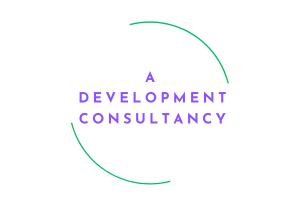Neurodivergence – it’s time for bravery and candour on all sides
 It is estimated that up to 15 percent of the UK population are neurodivergent. Individuals living with neurodivergent conditions, also known as processing disorders, have a different way of experiencing the world to the neurotypical.
It is estimated that up to 15 percent of the UK population are neurodivergent. Individuals living with neurodivergent conditions, also known as processing disorders, have a different way of experiencing the world to the neurotypical.
How informed are we about neurodivergence (really)?
Awareness of neurodiverse conditions is now discussed with children as young as three years old in SEN-qualified nurseries. Unfortunately, the same level of awareness and education can’t be said for the adult population. More than three quarters (77%) of HR professionals and 71% of senior leaders have not had specific neurodiversity training in the past 12 months, a survey has found.
According to the Institute of Leadership and Management, half of all leaders would not employ a neurodivergent person. What are the reasons for this? Surely this cannot mean that 50% of all people managers deliberately discriminate against anyone not considered to be neurotypical?
What is it to be neurodivergent?
Neurodivergent conditions include the following:
- autism spectrum disorder (ASD)
- attention deficit hyperactivity disorder (ADHD)
- dyslexia
- dyspraxia
- dyscalculia
- dysesthesia
- epilepsy
- obsessive compulsive disorder
- Tourette’s syndrome
- Down’s syndrome
- bipolar disorder.
In the ILM report, which polled 1,156 managers, 32% of respondents stated they would be uncomfortable employing or managing someone with ADHD or Tourette’s, 26% for dyscalculia, 19% for dyspraxia and, perhaps most surprisingly, 10% of respondents stated they would not be comfortable employing someone with dyslexia.
Kate Cooper, Head of Research, Policy and Standards at the Institute of Leadership & Management, said: “There are acknowledged benefits that neuro-minorities bring to our businesses, so we are calling for greater inclusivity for neurodivergent people in the workplace – or their valuable, diverse contributions will be lost.”
Is the exclusion from the workplace of neurodivergent individuals coming from a position of fear?
Diane Lightfoot, Chief Executive of the Business Disability Forum, said the report’s findings highlighted “the lack of awareness and even fear that can exist around recruiting and managing people with neurodiverse conditions”.
To boot, employment legislation doesn’t always make it straightforward to close the awareness gaps either.
For example, an employer can ask questions about health and disability if it is to better understand how they can make reasonable adjustments to support, but nobody needs to tell their employer they’re disabled. There is great risk in asking the question and getting it wrong (Chief Constable of Norfolk v Coffey [2019] EWCA Civ 1061 s.15 Equality Act 2010,) or in being seen to discriminate as a result of something ‘arising from’ a disability (s.15 Equality Act 2010) and evermore risks from being accused of discriminating on the grounds of a perceived disability when the employee doesn’t have one. There is no ceiling on the amount of compensation for disability discrimination; given the complexities in both common law and statute, this terrifies employers.
How do you combat the fear and increase awareness?
The answer is to establish a culture where people want to communicate and share. Ignorance is the enemy here and it’s easy to understand why… according to a recent City and Guilds study, 32% of neurodiverse individuals have not disclosed their condition to their employer, with 10% of those who had shared their condition experiencing a poor response. Neurodivergence, in the field of disability, is playing catch-up and organisations, through policy implementation and cultural change, need to create an environment where neurodivergent individuals feel safe to exist as themselves, so others can feel safe having candid conversations about it and supporting them without fear of wrongdoing.
The downsides of not overcoming that ‘fear’
At the time of writing, there were 3.7 job vacancies per 100 employee jobs in the UK – the highest job vacancy rate in over 20 years. HBR stated that unemployment in the UK neurodiverse population could run as high as 80%, and only 21.7% of individuals in the UK with autism are in active employment. The employment market, and organisations globally, are missing out from a lack of divergent thinking which relies upon a diverse working population.
Organisations are crying out for talent, struggling to fill roles and missing out on a key talent pool which could have profoundly positive impacts on companies and their employees. Bravery, candour and change are needed now.
For some practical adjustment suggestions please refer to our Neurodiversity in the Workplace blog. If you have a query about neurodiversity, cultural change or any HR-related issue, contact us to arrange to speak to one of our consultants.




